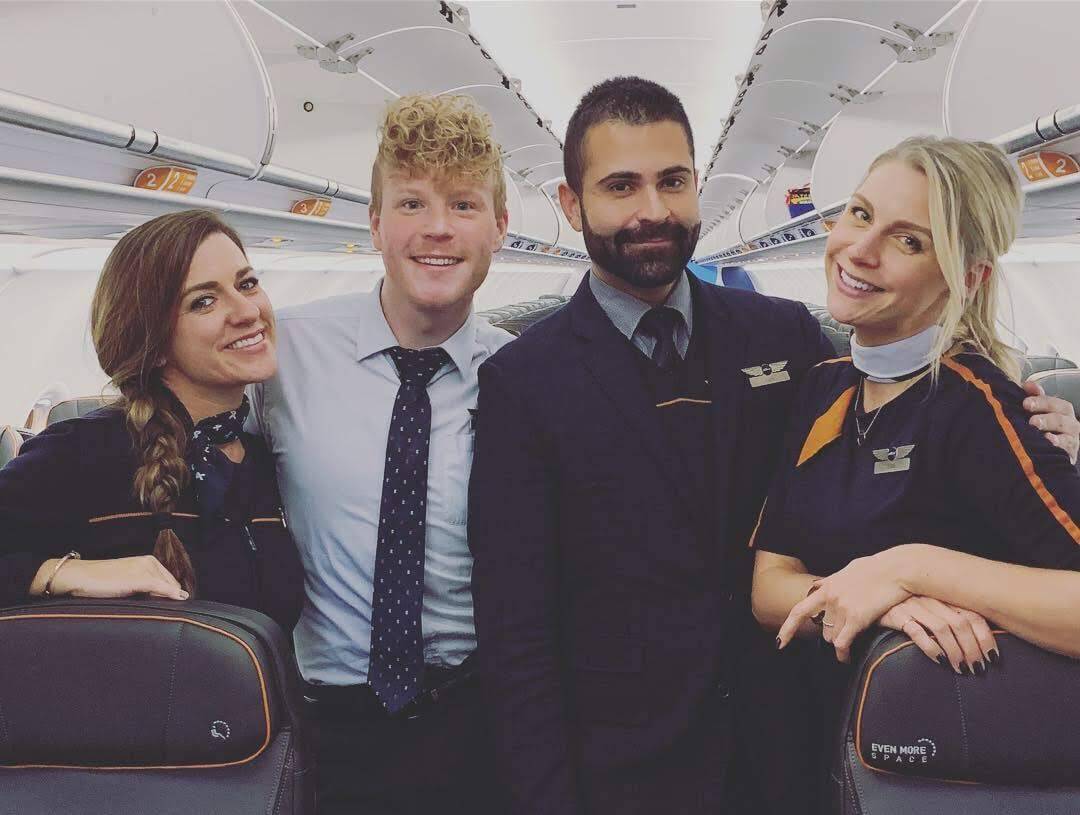
More than Coke & Pretzels: 8 Real Jobs Flight Attendants Are Trained To Do
You’ve probably heard me, or maybe another flight attendant, say that our job is not just serving coke & pretzels, but is that of a safety professional. You might have rolled your eyes, and to be fair some of my coworkers deserve it when they get all high-horsed about the safety stuff. But there is something to it.
Flight attendants are trained safety professionals first. But we are so much more than that. There are in fact real, important parts of our job that do not involve drinks, snacks, or being grouchy. Some of them even look like other jobs. Today we are talking about all the many hats flight attendants wear. I’m counting down the 8 Jobs flight attendants have that you might not know about.

Just don't ask me to open the door.
The 8 “Jobs” of Flight Attendants
(That Might Surprise You)
1. Evacuators
The number one thing we are in the airplane for is to deal with potential emergencies. And an evacuation is a big ass emergency.
Even talking about an emergency landing gives me the heeby-jeebies, so I’m not going to get into detail about it. But if a plane must land unexpectedly due to some mechanical failure, there is a chance we could have to GTFO really quickly. Our job as flight attendants is to facilitate an evacuation. We must get everybody out of the plane as safely and quickly as possible. Then, once all of you are out, we have to grab necessary emergency equipment if there is time. Should it be a water landing, we have procedures to send SOS signals, to create a pop-up floating tent inside the life raft. On land we must be mindful of debris, the engines, fire breaking out.
When it comes down to it, every evacuation will be different, so our training must be both specific and encompassing. We are trained to use muscle memory to get you all out safely and then to use our QUICK critical thinking skills to determine what to bring with us and the best course of action.
This is a scary job.
You, as passengers, can help to make it better for all of us.
- Listen to instructions.
This is so basic, but for some reason nobody on the plane ever seems to listen to announcements. At the bare minimum, watch and listen to the safety demonstration. Take a peek at the safety information card. Even if you fly all the time. Different planes and different airlines have different evacuation procedures. You probably won’t need to know this stuff, but if you do need to know it, it REALLY helps to know it.
- Leave. Your. Bags.
In 2019 a Russian aircraft crashed, killing 41 out of the 78 people on board. All of the victims were seated in the rear of the aircraft. The people in front got out. News footage would show surviving passengers dragging their carryon baggage behind them, a burning plane in the background—victims inside. This sparked public outcry and criminal charges being brought against survivors. A good thing, most flight attendants agree.
Grabbing your bags in an emergency evacuation wastes precious moments. No matter how expensive your luggage, your jewelry, your laptop, your business plan, it is not more important than someone’s son, daughter, mother, brother. Taking your things can mean taking a life in these situations. It is not only morally reprehensible, but now, with precedent, it is criminal.
2. Firefighters
I know, right? Fun stuff. I pray that I never have to experience a fire in-flight, but it has happened before, and it will surely happen at some point again.
The fact is there are a lot of electrical components on airplanes, and there is also increased risk because of the number of lithium batteries being transported on commercial flights. Almost every single passenger is traveling with one—a laptop, an e-cig, a smart backpack, a cell phone. There are different firefighting procedures on the plane depending on what type of fire it is, and we as flight attendants must keep this information in our brains so that we don’t accidentally make the situation worse by, let’s say pouring water onto an electrical fire.
Fighting fires is an important part of flight attendant training.
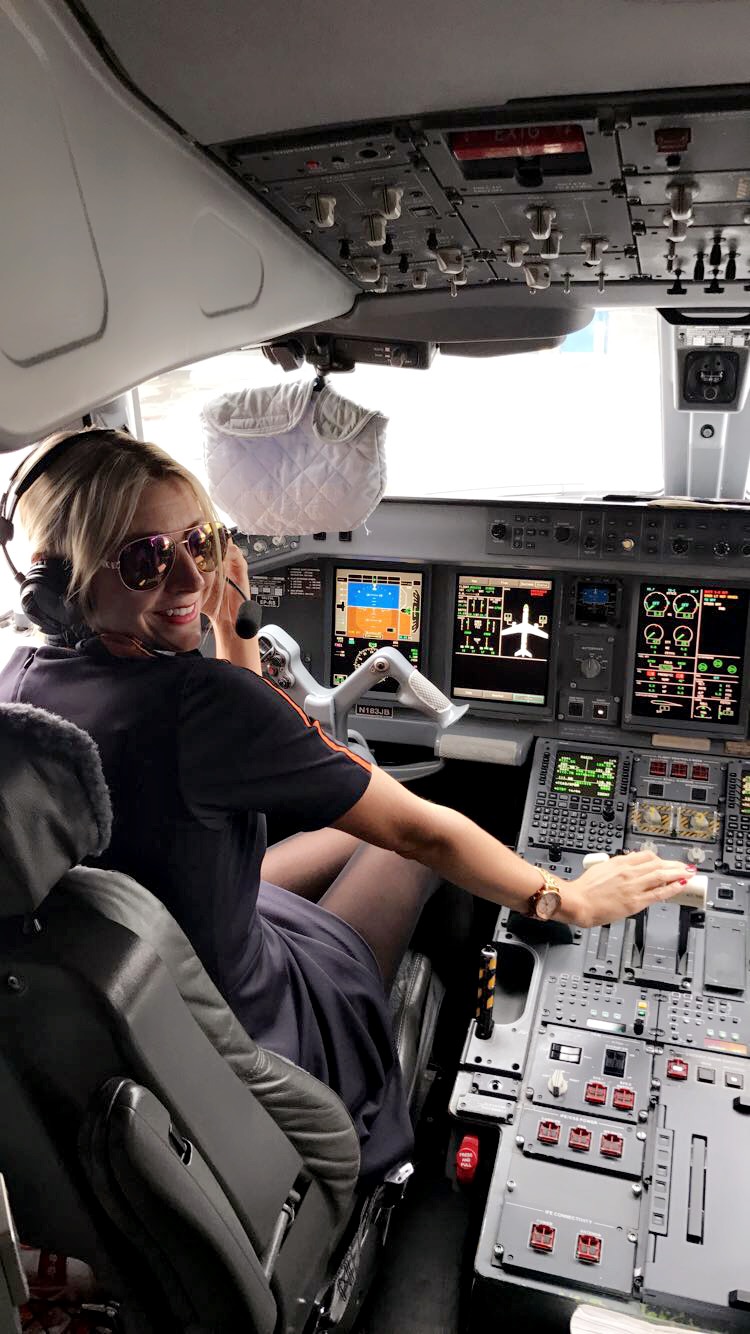
Definitely NOT trained to do this job.
3. Medical Professionals
Part of our job as flight attendants is to step in and assist with medical incidents that can range from no-big-deal to pretty-freaking-scary.
Medical incidents—“Medicals” as we call them in the ‘biz—are the most common type of disruption/emergency that flight attendants deal with. If you are a flight attendant who works redeye flights, you are guaranteed to see at least one per month, or more. Usually, it is something as simple as a passenger fainting (literally saw one per week when I used to work redeye flights), but sometimes it can be something much more serious, like choking or a heart attack.
When we encounter a serious medical emergency, we call over the PA system for a doctor or nurse, and most often there is one on board. But sometimes there is not. Even when there are true medical professionals on the plane, the flight attendants still must stay and assist until that doctor or nurse is identified and arrives to help the passenger.
Truly, we do not do the full work of doctors and nurses, but we flight attendants are trained in a variety of medical situations. CPR (on adults, children, babies, and pregnant women), administering oxygen, and the use of an AED should we, god forbid, have to use it. We’re trained to ask certain questions to get to the root of what is going on. We have medical forms to fill out, along with a service called MedLink that the pilots can contact on our behalf. MedLink is basically like seeing a doctor or nurse remotely. They cannot physically touch you, but they assess symptoms, analyze information, and recommend next steps. And we’re the arms in that situation, carrying out the doctor’s orders to assist the patient in need.
The most I have ever had to do on a flight is administer oxygen, but some of my coworkers have delivered babies, bandaged wounds, and put all their effort into saving someone through CPR. Personally, I would be so down to help deliver a baby, but I’m kind of hoping to avoid the rest of the scary stuff until I retire.
It is worth noting that many flight attendants actually are doctors and nurses, or they used to be. Working with these coworkers provides a little extra peace of mind.
Beyond the serious stuff, flight attendants also handle tons of lower-level medical issues like vomit, headaches, belly aches, aching ears, etc. We have acetaminophen (generic Tylenol), antacids, antibiotic ointment, and bandaids on the plane if you ever need some.
I don’t feel I can end this post without giving a bit of advice to you non flight attendants regarding medicals. As I mentioned earlier, passing out or fainting is one of the most common medical ailments/occurrences on the plane. It is not always something that can be helped, and it is certainly nothing to be ashamed of (it happens to tons of people). But there are some things you can do to mitigate your risk so that you don’t end up laying on a gross airplane carpet with strangers all around staring at you.
Drink water. Please for the love of god, drink some water. Dehydration is almost always involved when people pass out on the plane.
Eat food. Skipping dinner before a redeye flight could leave you with low blood sugar. Often through our interviews with fainted patients, we learn that they hadn’t eaten anything before the flight. Or worse, they had wine for dinner.
Skip the booze. Pregaming your redeye with red wine is the WORST idea. I know you think it relaxes you, but alcohol is actually bad for sleeping. Plus, it further dehydrates you, and the airplane is one of the driest environments you could be in. Also, alcohol hits different at high altitudes. Because of oxidation in the blood, being at a high altitude amplifies the effects of alcohol. You’ll get more drunk, and quicker, with the same amount of alcohol as consumed on the ground safely.
The pills. I know some of you are nervous flyers and I know some of youl need drugs to fall asleep. Please be mindful that your body is undergoing changes through the pressurized cabin, the altitude, the often-uncomfortable temperatures in the plane. Take what you need but try not to take more than that. And please, for the love of god, don’t mix the pills with alcohol. This is when embarrassing things happen.
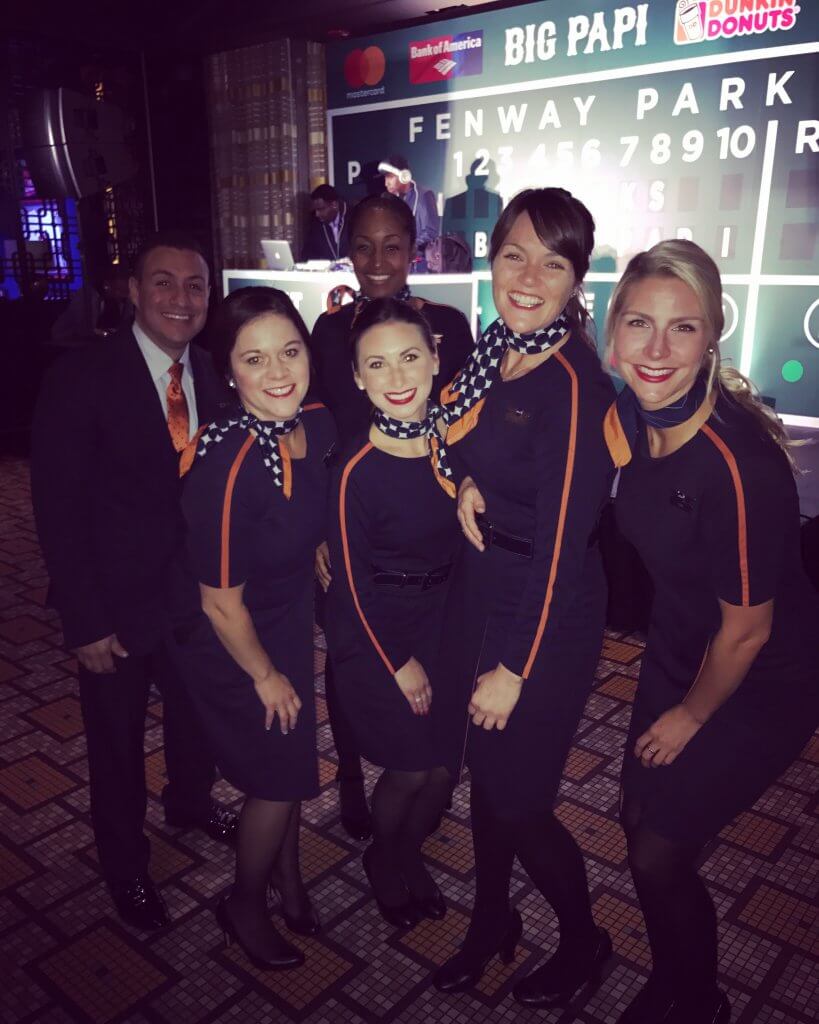
We're also party promoters.
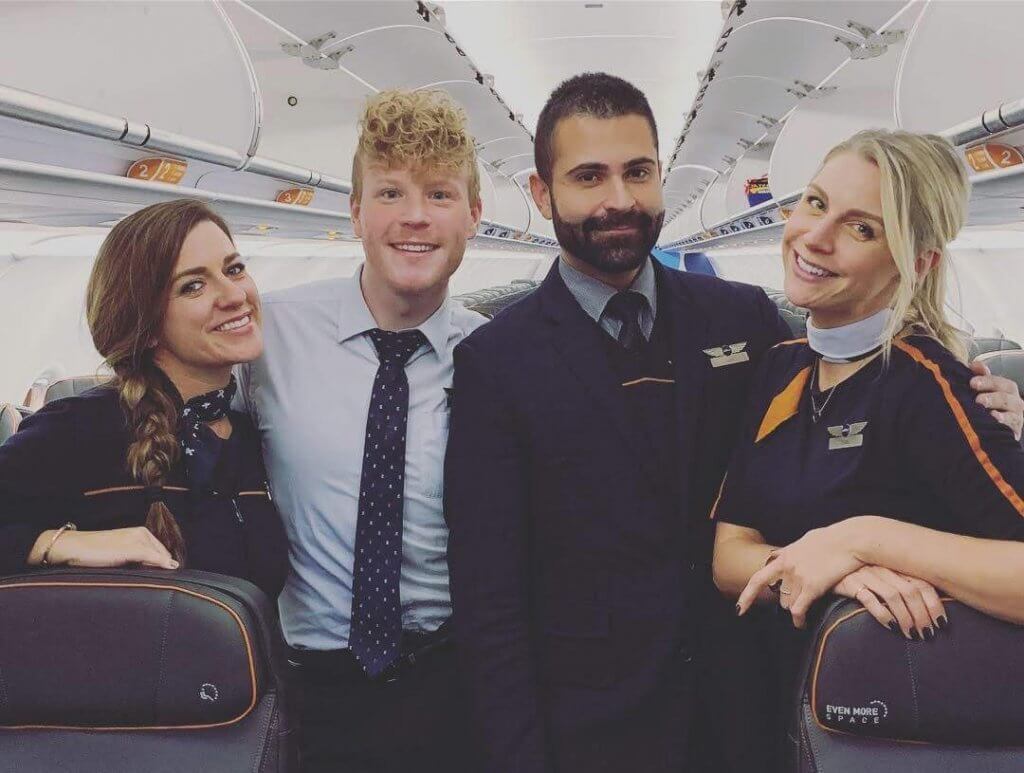
And models.
4. Trafficking & Terrorism Task Force
We are not a real taskforce, but human trafficking is a very real problem. (Yes, even in the US.) Flight attendants are trained to look out for human trafficking on the plane, which is not always easy to spot. We’ve learned some red flag signs to help identify potential cases of human trafficking. Check out this Uniting Aviation page or this Business Insider Article if you’re interested in learning some of these signs or getting more information.
It will surprise no one in a post 9-11 world that terrorism is one of the things flight attendants must be aware of and look out for. The reason I grouped these two things together—terrorism and human trafficking—is because, for flight attendants, the training in discovering these hard-to-spot plots is pretty similar. Basically, it boils down to something not feeling right—something being “off”.
We are in the air all the time, we see hundreds of people traveling every day. If something seems weird or makes us uneasy, we do not assume things are fine and hope for the best. Even if the thing is only slightly weird, flight attendants are trained to call a huddle with our crew to discuss the situation in question. Maybe it is a relationship between two people that seems a bit strange. Maybe it is someone looking dazed or unaware of their surroundings. We check to see if this weird thing is sounding alarms in our coworkers’ minds, too. And if it is, we work as a team to determine next steps.
Situational awareness is a big, important part of flight attendant training. It helps us to identify drunk people, medical emergencies, human trafficking, and potential threats like violent outbursts. And even…gulp…terrorism.
5. Babysitter
Sometimes this one is fun, like when I get to hold a baby so Mom can go to the bathroom or stow a bag. Sometimes this is less fun, like when I have to tell grown ass adults to wear their masks 700 times on the same flight. Or when I have to ask someone to kindly stow their laptop for takeoff more than once. Or when I have to listen to people—usually adults—throw tantrums over weather-caused delays or their movie not working.
(I get it. Delays suck. Flight attendants don’t get paid for delays, so believe me I’m on your side. If you want to know more about this, check out paymeforboarding.org and sign the petition to end the free labor of flight attendants. )
Flight attendants are even literal babysitters sometimes, like when we care for UMs—unaccompanied minors. We feed them snacks, ask about their trip, and make sure they get through the flight comfortably and safely.
Just like being a babysitter, sometimes you get to be the nice guy (like when I give you a free drink just because I like you) and sometimes you have to be the bad guy (like when I have to insist your oversized bag gets checked under the plane.) Sorry booboo, it’s business.
I will tell you all I enjoy the good cop role way more.
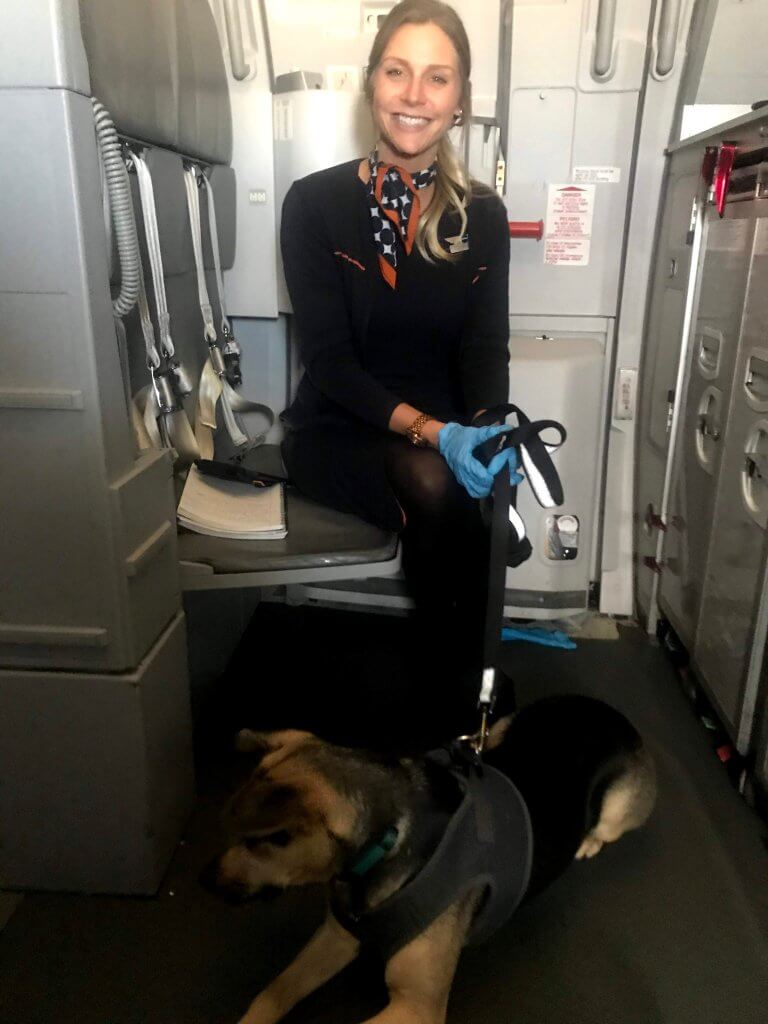
This might be my favorite kind of babysitting.
6. Therapist /Counselor/Support Group
I am not a trained therapist but lawdy lawd I have given some advice on the jumpseat. Being a flight attendant is a very social job (as I’ve mentioned in, like, every single one of my posts) and it is common to make fast friends with your crew.
Y’all.
The shit I HEAR over here.
I have heard people’s life stories in the first day of meeting them. Deep dark secrets. Deep dark fears. Relationship dramas. Coworker dramas. Family dramas. Death. Affairs.
A lot of tea is spilled on the jumpseat and we flight attendants end up acting as one another’s peer therapists for the day. Or we skip the advice and just support. Listen with kindness. Show some understanding and empathy. It’s weird and also really beautiful.
But our coworkers are not the only ones privy to our counseling superpowers.
I have assisted people having panic attacks on the plane. Just this morning, in fact, my crew and I had to help a young man who was weeping and vomiting, terrified to travel. We attempted to soothe, to offer an empathetic ear, a new seat, and even creature comforts like blankets and headphones. But in the end, his anxiety was stronger than these in-flight therapists’ skills (and his wife’s desire to go on vacation). They ended up getting off our flight and staying behind. I hope he tries again soon, and makes it to vacation this time.
In the past, I have hugged a sobbing woman in the back galley, wrapped my arms around her grief. I have talked people through their fear of flying. I have sat with a tiny unaccompanied minor while he cried, understandably frightened to be on an airplane by himself. I have assisted a woman to get her young adult daughter, passed out from the alcohol she’d snuck onto the plane, into a wheelchair. Then listened, chatted, empathized, and supported the woman as she explained to me they were on the way to bring her to rehab. How much her daughter’s drinking had disrupted all of their lives. How they’d tried so many things, but she really hoped this time would work.
We can’t always solve people’s problems. But sometimes a shoulder to cry on, a listening ear, or a hug from a stranger can make a real difference.
7. The Sex Police
Inevitably, the first question EVERYONE asks when they find out I’m a flight attendant is about the “mile high club”. I’m not sure if it’s the risk of public exposure, the altitude, or the unsanitary environment (y’all planes are GROSS) that makes people want to do the nasty on the airplane. But either way, I am not here for it.
Do not try to get freaky on my plane. I will find you and embarrass you. If your private parts are exposed, I’m sending the real cops in to deal with you. Sorry not sorry, get a (hotel) room.
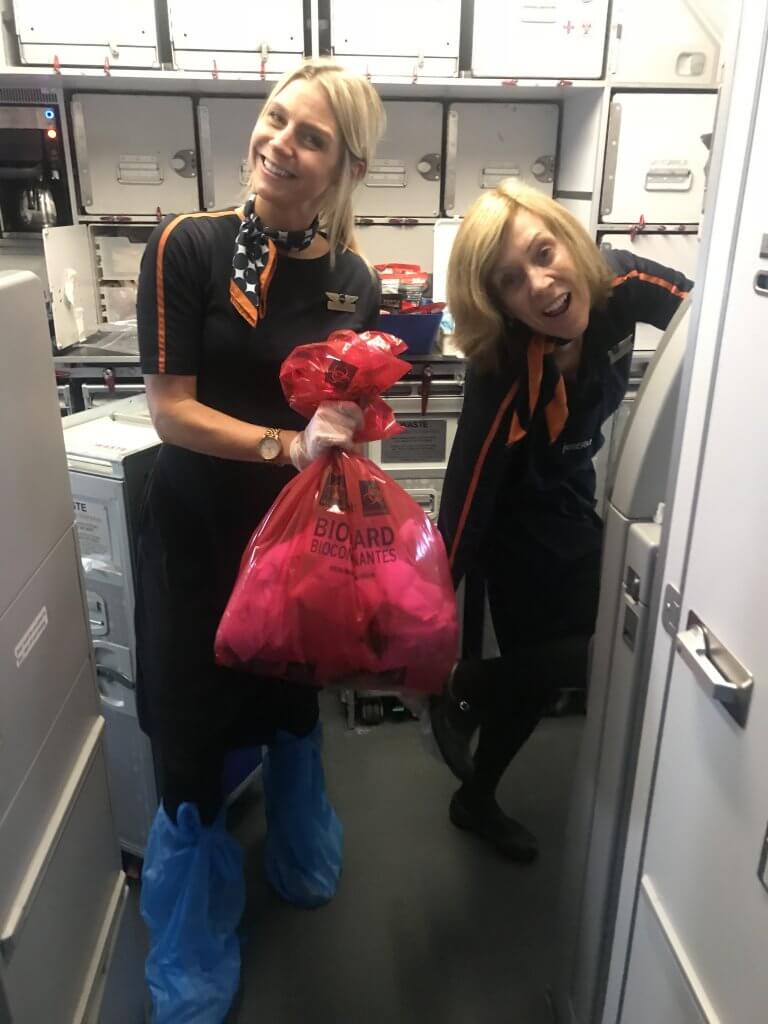
The worst job of all.
8. The Cleaners
I put this one last because I hate this job the most. Airplanes are dirty places and flight attendants inevitably get stuck cleaning it up. Bodily fluids are the worst and VERY common. And yes, I’m being vague on purpose–there are a lot of different fluids and secretions that end up in the airplane. But there is also less icky waste that we attend to like spilled coffee, water flooding the galley, or the trash your family left scattered all over the floor in your row.
None of it is pleasant. Please help us to not have to do this job so much. Hand us your trash when we walk through the aisle with a trash bag.
These are 7 jobs flight attendants do that most people don’t know about. Did any of these jobs surprise you? I hope this gives a better understanding of what our work entails. As you can see, flight attendant life goes way beyond cookies, pretzels, and cool vacations. Follow the tips above, and check out some of my other travel tips, to make all of our (many) jobs a bit easier.
Flight attendants—what other jobs did I miss?
Normal people—What jobs would people be surprised to find out you do at work? Let us know in the comments! We want some tea!
In the meantime, I hope all of you have a safe & happy weekend. And no matter how many jobs you do, don’t work too hard.

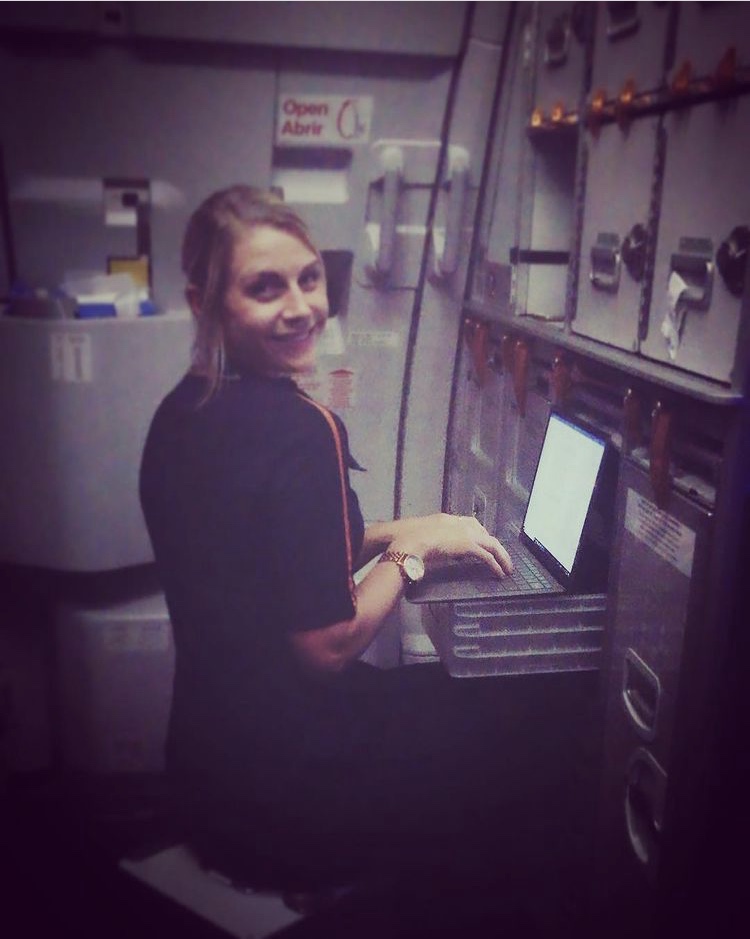
Hey you. Yes, you! Thanks for stopping by. I hope you liked reading about the 8 “other” jobs flight attendants do. If you want to check out some more flight attendant content, you can try these posts:
7 Things I wish I knew Before Becoming A Flight Attendant
4 Hard Lessons Every Flight Attendant Must Learn
The DOs & DON’Ts of Dating A Flight Attendant
10 Things Flight Attendants Do In Hotels They NEVER Do At Home
Lessons in the Sky: Gratitude At 30,000 Feet
The 7 Most Annoying Things About Flight Attendants
Thanks again for stopping by!
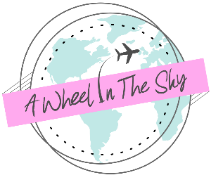
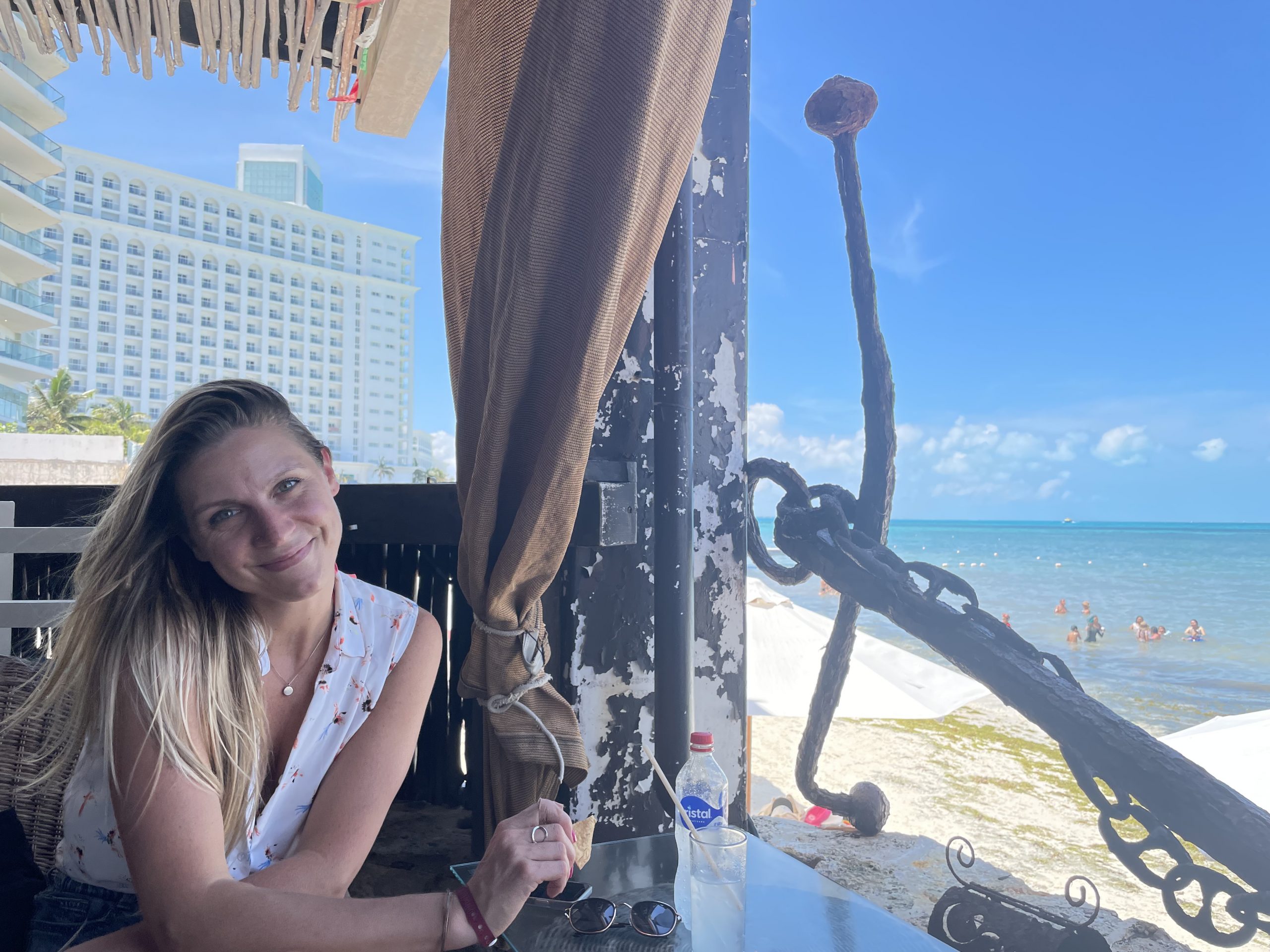
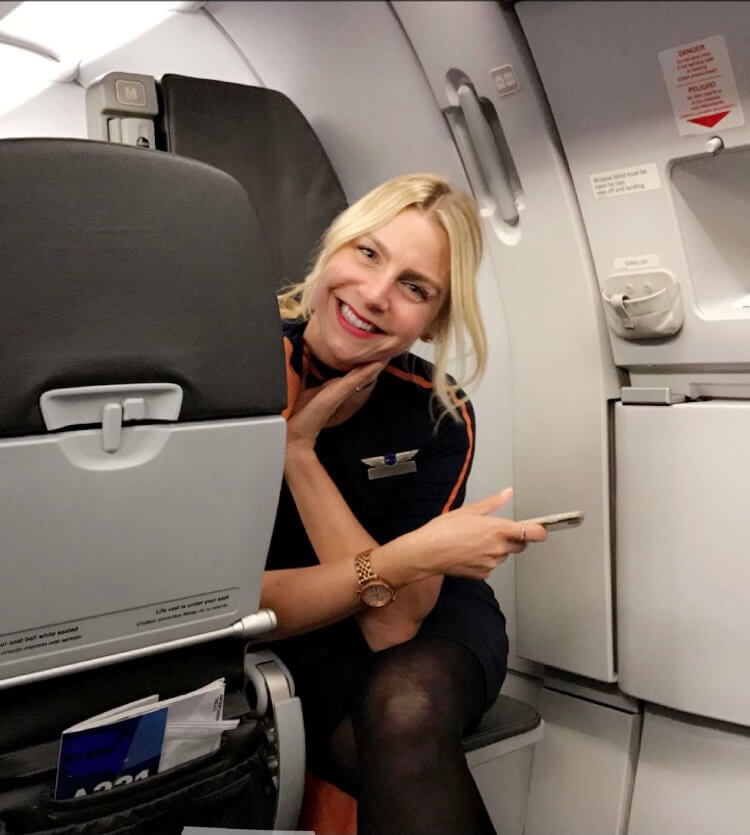
Maria johnson
I love your blog and really enjoyed reading this post. As usual you are spot on. Thank you for sharing your insight. Maybe it can help people to be better flyers and even save some lives!
Toni
Hey Maria,
Thanks for taking the time to leave a comment! Of course I love sharing flight attendant content with other flight attendants, but I often am hoping to shed a little light on what we do to those not in the ‘biz. Glad these rang true, and cheers to better flyers! 🙂
Corey Beeler
i loved reading this so much!!
Toni
Awww thank you my friend <33